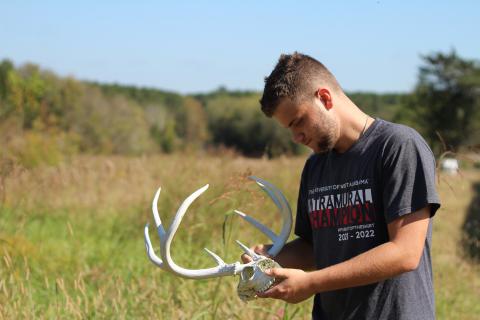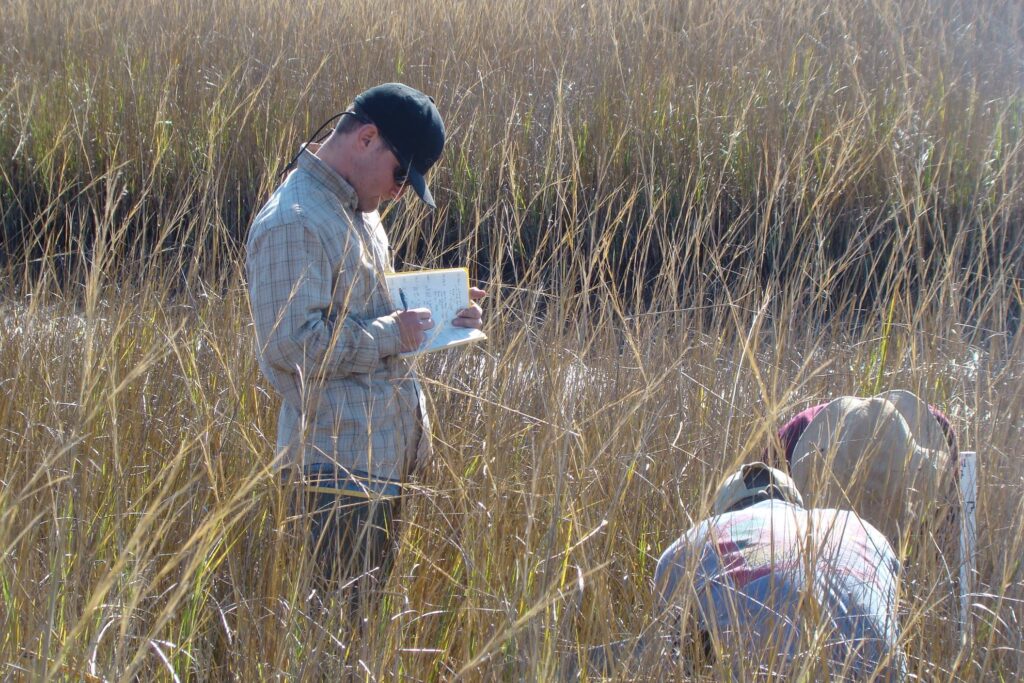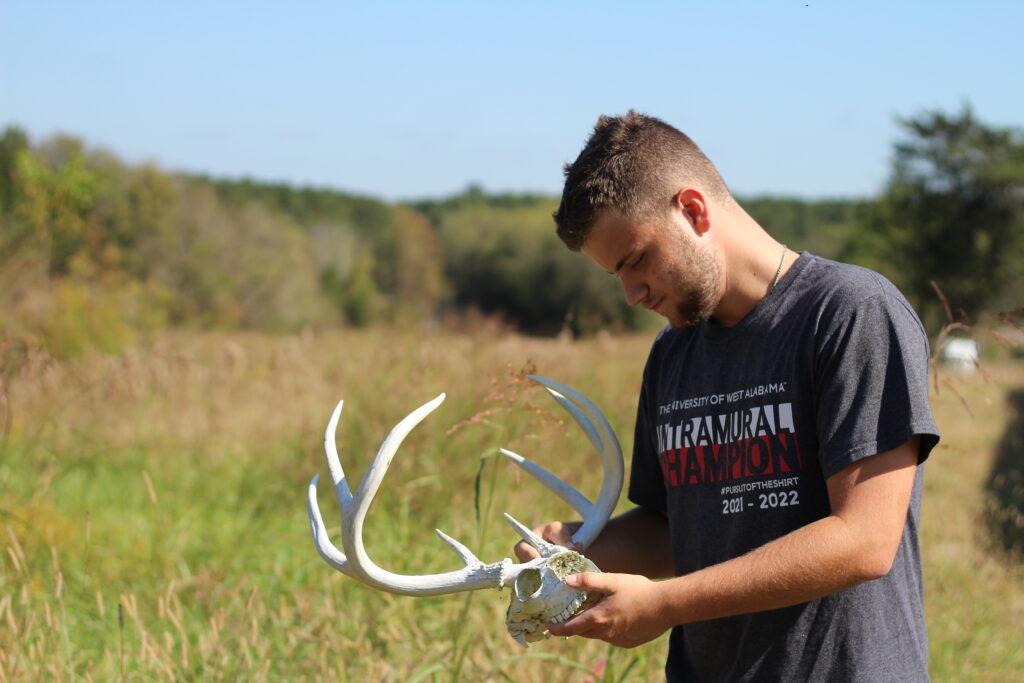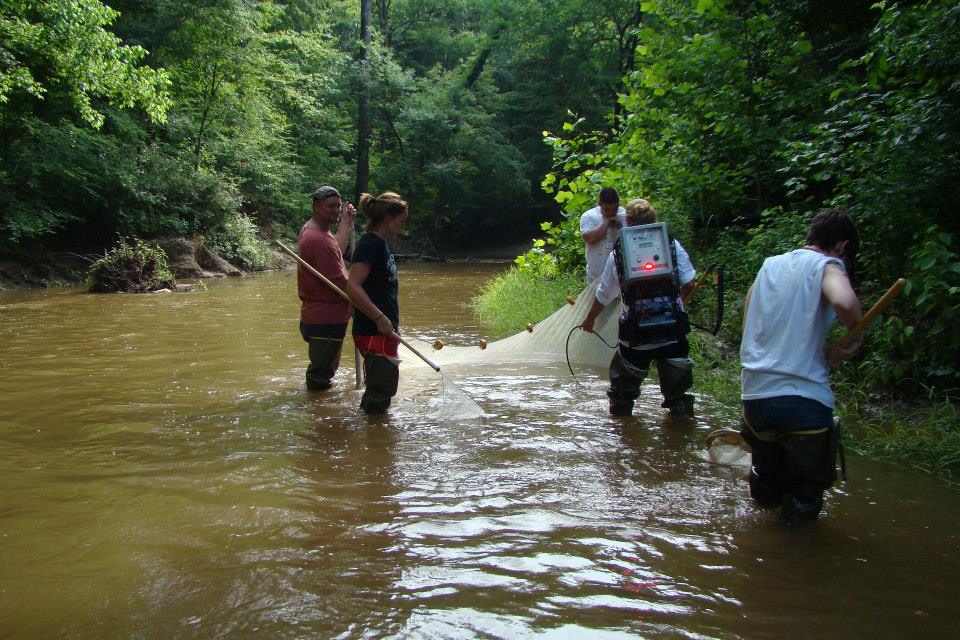New biology track at UWA gives professional skills, qualifications to build careers in outdoor rec, conservation enterprises

Story: Phillip Tutor | Photos: Contributed
Dr. Lee Stanton expected the University of West Alabama’s creation of a conservation enterprise track within its environmental science degree program would be a measured exercise. Worthwhile and fulfilling, yes. But purposefully deliberate.
It just hasn’t worked out that way.
“We were expecting a little bit of time to develop these third- and fourth-year classes,” said Stanton, an assistant professor of biology at UWA and the director of the Black Belt Conservation and Research Institute. “But the heat’s been turned up on us because we have several (students) who are at that stage now.”
Though UWA’s new academic track started recently with little public fanfare, two transfer students are already enrolled. In Stanton’s view, that exemplifies the interest in a program designed to give graduates real-world skills attractive to employers in fields such as state parks, nonprofit conservation organizations, hunting lodges and national wildlife refuges.

At UWA, program graduates will earn a bachelor of science degree in environmental science that includes a conservation enterprise track. Similar programs are offered on only two other campuses, Auburn University and Kansas State University, Stanton said.
“We’re just trying to recognize that there’s a need for this training in our area,” Stanton said. “Obviously, our region is very undeveloped. There are a lot of natural resources and there is a tremendous interest in a lot of these outdoor activities in this area.
“We’re trying to identify this niche that we hope can provide training to these students who are ready to hit the ground running. This isn’t necessarily a degree program that’s going to train students for graduate school or anything like that. This is designed for students who are ready to go to work and like to work outdoors.”
Vital to the track’s success is its requirement of multiple two-hour practica. In those, students will focus on a variety of hands-on skills, such as gun safety, fire ecology, deer management, chainsaw safety, tree felling, invasive species management and herbicide application, among others.
For instance, students who enroll in a deer management practicum will learn modern methods of managing deer populations, ways to increase the size of deer antlers, and effective uses of proteins and supplements for growing deer herds.

Practice in gun safety will give students expanded exercises in the safety techniques publicly taught by law enforcement agencies and reputable gun clubs. For practical reasons, most of the practica will rely on adjunct professors and instructors.
“We’re certainly starting off from scratch here,” Stanton said. “Obviously, my Ph.D. is in oceanography and I know my way around a gun, but that’s not my training. We’re going to rely on those individuals who do have that training to provide that instruction to our students.”
To develop the track’s courses, Stanton and colleagues in UWA’s Department of Biological and Environmental Sciences looked at the department’s existing catalogue and “cherry-picked” some of the best ideas from other university offerings, particularly Kansas State’s Wildlife and Outdoor Enterprise Management program.
UWA’s program, Stanton explains, “is not heavy in chemistry. You’re not going to have to take a lot of the more complex biological topics.” Along with the hands-on practica, conservation enterprise students will take courses common in the environmental science program and courses in hospitality and accounting to develop business skills.

Additionally, conservation enterprise students will complete internships similar to those required in the environmental science program. Stanton envisions those students will be appealing interns for U.S. Corps of Engineers sites or managers of the myriad hunting lodges throughout west Alabama and east Mississippi.
With recruiting of high school students interested in the conservation enterprises track underway, UWA expects its first freshman enrollees in the program in August 2022, Stanton said.
“It’s really exciting,” he said. “We wanted to design a degree program that actually gave students not only book smarts, but also gave them a skill set that makes them valuable as soon as they get off campus.”